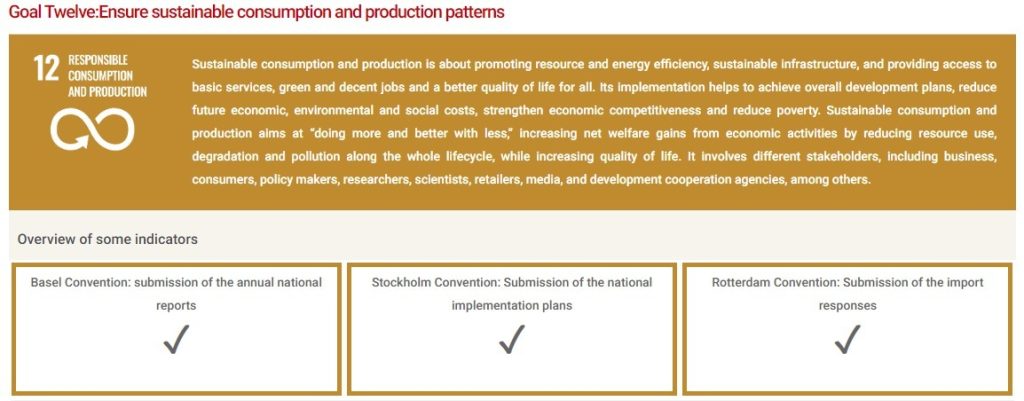Responsible Consumption and Production
Gulf University is committed to promoting sustainable practices and contributing to SDG 12: Responsible Consumption and Production. The university prioritizes responsible procurement, waste management, and recycling to minimize its environmental impact. Through initiatives like waste reduction campaigns, energy efficiency programs, and sustainable procurement, the university aims to foster a culture of sustainability among students, faculty, and staff.
The Sustainable Engineering Hub exemplifies GU’s commitment to promoting sustainable practices and contributing to SDG 12. The Hub will repurpose containers into functional spaces such as laboratories, classrooms, and canteens.
Besides, by encouraging sustainable lifestyles and raising awareness, the university is making a significant contribution to global sustainability goals.
The Government of Bahrain has made significant efforts towards achieving Sustainable Development Goal 12: Responsible Consumption and Production. The country has been taking various initiatives to promote sustainable practices and reduce the consumption of single-use plastics. In July 2019, Bahrain issued a law to cut plastic products, which came into effect on July 21, 2019. The law bans the import, export, and manufacture of plastic bags, cutlery, and other single-use plastic products. This law is a significant step towards reducing plastic pollution and promoting responsible consumption and production. Moreover, Bahrain has taken another step towards reducing the consumption of single-use plastics by imposing a ban on single-use plastic bags from September 2021. The ban applies to all retailers, supermarkets, and other businesses across the country. The government has also encouraged the use of reusable bags and other eco-friendly alternatives. Apart from these initiatives, Bahrain has also been promoting sustainable practices in other areas. In 2018, the Bahrain Economic Development Board (EDB) launched the first Sustainable Energy Unit in the country. The unit aims to promote energy efficiency and renewable energy in the country, thereby reducing carbon emissions and promoting sustainable practices.
Furthermore, the Bahraini government has launched several awareness campaigns to promote sustainable consumption and production. These campaigns aim to educate the public about the benefits of sustainable practices and encourage eco-friendly behaviors.
National Waste Management Strategy
The Kingdom’s strategy consists of five main pillars, that are currently under review: the backfilling of waste by engineering methods, the recycling of demolition and construction waste, the recycling and converting waste into energy, the recycling of household and commercial waste and the recycling of green waste.
Plastic Waste Management
Ministerial Orders since 2019 have banned the import of non-biodegradable plastic bags, the manufacture, import or trade of plastic water bottles and cups below 200ml, and the import, manufacture, and distribution of single-use plastic bags with a thickness of less than 35 microns. The use of plastic bags is expected to be banned in a later phase.
Hazardous Waste Management
In 2020, a Ministerial Order, prepared in cooperation with the World Health Organization, related to the management of hazardous medical waste was issued, addressing the management of hazardous medical waste from production until disposal. It includes strict conditions for proper segregation, sorting and storage of medical waste. The Government conducts annual inspections to all the healthcare facilities to ensure their compliance to the legislation.
E-Waste Management
In 2021 legislation related to the management of E-Waste was issued to regulate the process of managing electronic waste in a sound, safe and sustainable manner to protect public health and the environment.
Bahrain efforts for SDG 12

Last Updated on January 14, 2026 @ 01:33:48 pm

